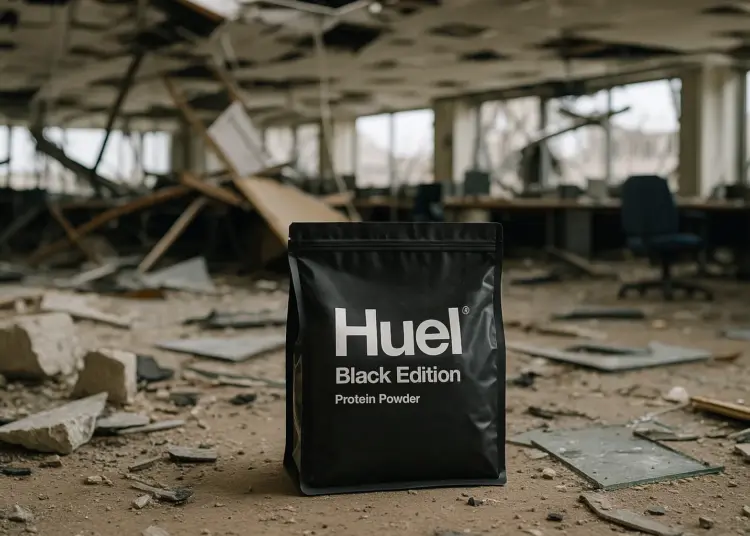Story Highlight
– Huel’s protein powder faces lead safety claims.
– Consumer Reports found high lead levels in testing.
– Huel defends product, calling report ‘unnecessary scaremongering.’
– UK and EU lead safety standards are significantly higher.
– Lead exists naturally in foods; Huel claims low levels.
Full Story
Concerns over the safety of Huel’s Black Edition protein powder have surfaced following a report from the US-based organisation Consumer Reports Study, which claims the product contains levels of lead that could pose serious health risks to consumers. This has prompted a strong response from Huel’s management, who categorically disagree with the findings.
Huel, which combines the words “human” and “fuel,” markets its Black Edition as a nutritionally complete meal replacement. The product is designed to provide a comprehensive serving of essential macronutrients, vitamins, and minerals in a single scoop. However, the recent analysis by Consumer Reports has drawn attention to the presence of lead in various protein powders, including Huel’s offering, stating that more than two-thirds of the tested samples exceeded the safe threshold for daily lead consumption.
The watchdog has set a precautionary guideline of no more than 0.5 micrograms of lead per day for consumers. Meanwhile, the US Food and Drug Administration (FDA) suggests that there is no entirely safe level of lead exposure. According to the report, one serving of Huel’s Black Edition reportedly contains over 6 micrograms of lead, a figure that has raised red flags among health experts.
William Patterson, Marketing Director at Huel UK, criticized the Consumer Reports findings, labelling them “unnecessary scaremongering.” He argues that the organisation used what he calls an “ultra conservative threshold” in its analysis. Patterson further expressed the company’s frustration, emphasising that “Huel’s Black Edition is completely safe and meets all UK and EU food safety standards.” The current UK guidelines allow for a daily lead intake of up to 135 micrograms, which is substantially higher than the limits imposed by California’s Proposition 65—an important reference point in the report.
Both the UK and US versions of Huel’s Black Edition are said to have similar formulations, although adjustments have been made to cater to different markets. Huel confirmed that while the recipes differ slightly, the lead levels in both versions are comparable and remain well within industry-recognised safety limits, with regular testing conducted by accredited labs ensuring consistent results.
Patterson also pointed out that the cautious regulatory approach taken by Consumer Reports reflects a level of scrutiny that is not universally accepted as standard across various global food safety regulations. He stated, “The UK and the US recipes are extremely similar, and testing shows that lead levels are also almost identical. Both are very low and well within recognised safety limits.”
In light of the findings, health expert Pieter Cohen from Harvard Medical School acknowledged that the report serves to highlight the ongoing issues of heavy metal contamination in food supplements. He noted that the presence of these elements can result in greater challenges for consumers, particularly in the context of long-term exposure to lead, which poses serious health threats.
Huel, however, has defended its product as comparable to many everyday meals, explaining that trace minerals, including lead, can naturally occur in agricultural produce as a result of soil absorption by plants. Patterson provided a relatable context, stating that a traditional meal consisting of sausages, potatoes, cabbage, and carrots could contain around 5 micrograms of lead, and most adults might consume anywhere between 20 to 80 micrograms of lead daily through their regular diet.
Amidst these revelations, it’s important to note that researchers have previously highlighted the lifelong impacts of lead exposure as an often-overlooked issue in the UK. Lead can accumulate in the body, particularly affecting the brain, and children are especially vulnerable as their developmental processes are ongoing. Lead poisoning can lead to severe complications, including organ damage and neurological issues.
Despite the concerns raised, the consensus remains that lead levels in food products have seen a decline globally since it was phased out of petrol in the late 1990s. Huel’s vigorous defence of its dietary offerings indicates a firm commitment to consumer safety, as the company navigates this challenging landscape.























If the Consumer Reports findings are accurate then this is a serious concern because repeated exposure to lead even at low levels can have cumulative health effects. Product safety should be judged against recognised regulatory limits and robust testing protocols and if there is any uncertainty an independent laboratory analysis using validated methods should be carried out and results published. Manufacturers should also review raw material sources and production controls to minimise contamination and provide clear guidance to consumers on safe use. Transparency from both the company and regulators will be key to maintaining trust while ensuring public health is protected.
Any potential for elevated lead in a food product should be taken seriously. Regulatory limits exist to protect public health and manufacturers must ensure their testing is robust and transparent. If Consumer Reports found consistent exceedances of precautionary guidance that warrants further independent analysis and dialogue with regulators. At the same time companies should provide clear data on sampling methods, batch testing and traceability to reassure consumers. Consumers who use these products regularly or in large quantities should consider moderating intake until there is clarity and consult a healthcare professional if concerned.